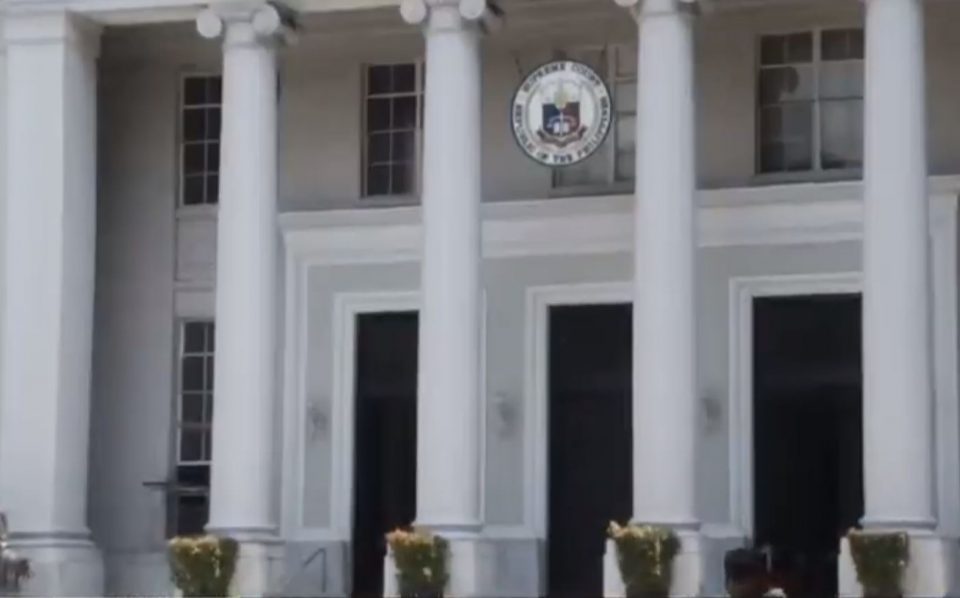Palace welcomes ruling, says it is a triumph for all peace-loving and law-abiding Filipinos


(Eagle News) – The Supreme Court ruled with finality that most provisions of Republic Act 11479 or the Anti-Terrorism Act of 2020 are constitutional, as it denied with finality the various motions for reconsideration that challenged its earlier decision
“The Court resolved to deny the motions for reconsideration due to lack of substantial issues and arguments raised by the petitioners,” the SC’s media release said on Tuesday, April 26.
“The Members of the Court maintained their votes in their December 7, 2021 Decision which was penned by then Associate Justice and now Philippine Judicial Academy Chancellor Rosmari D. Carandang,” it said.
The newly appointed associate justice Antonio Kho, Jr., sided with the majority.
The high court immediately ordered the entry of the judgment.
The SC Public Information Office was also directed to upload the copy of the resolution that denied the motions for reconsideration once it becomes available.
Malacanang immediately issued a statement welcoming the decision.
“We consider this latest High Court ruling a triumph for all peace-loving and law-abiding Filipinos as it serves as a stern warning against malevolent elements that the Philippines is not a safe haven for terrorists,” said the Palace statement.
-Anti-Terorrism Act of 2022 upheld except for 2 provisions-
In its December 7, 2021 decision, the Supreme Court (SC) upheld the validity of RA 11479 or the Anti-Terrorism Act of 2022 except for two provisions of the law – the qualifier portion of Section 4 and a portion of Section 25.
Except for these two, all the other challenged provisions of RA 11479 are constitutional.
The SC then voted 12-3 to declare unconstitutional the qualifier portion of Section 4 that deals with excluding mass actions and similar exercise of civil and political rights from the definition of terrorism.
The qualifier portion of Section 4 that did not pass the SC states “which are not intended to cause death or serious physical harm to a person, to endanger a person’s life, or to create a serious risk to public safety.”
This qualifier in Section 4 “is declared as unconstitutional for being overbroad and violative of freedom of expression,” the court said in its December 2021 ruling.
Also stricken down in that ruling by a vote of 9-6 was a portion of Section 25, paragraph 2 that allows “request for designations by other jurisdictions or supranational jurisdictions may be adopted by the ATC after determination that the proposed designee meets the criteria for designation of UNSCR No. 1373″
The UN Security Council Resolution 1373 details how States could act against terrorism.
The various motions for reconsideration on the SC ruling were filed by various human rights lawyers and groups.
(Eagle News Service)
